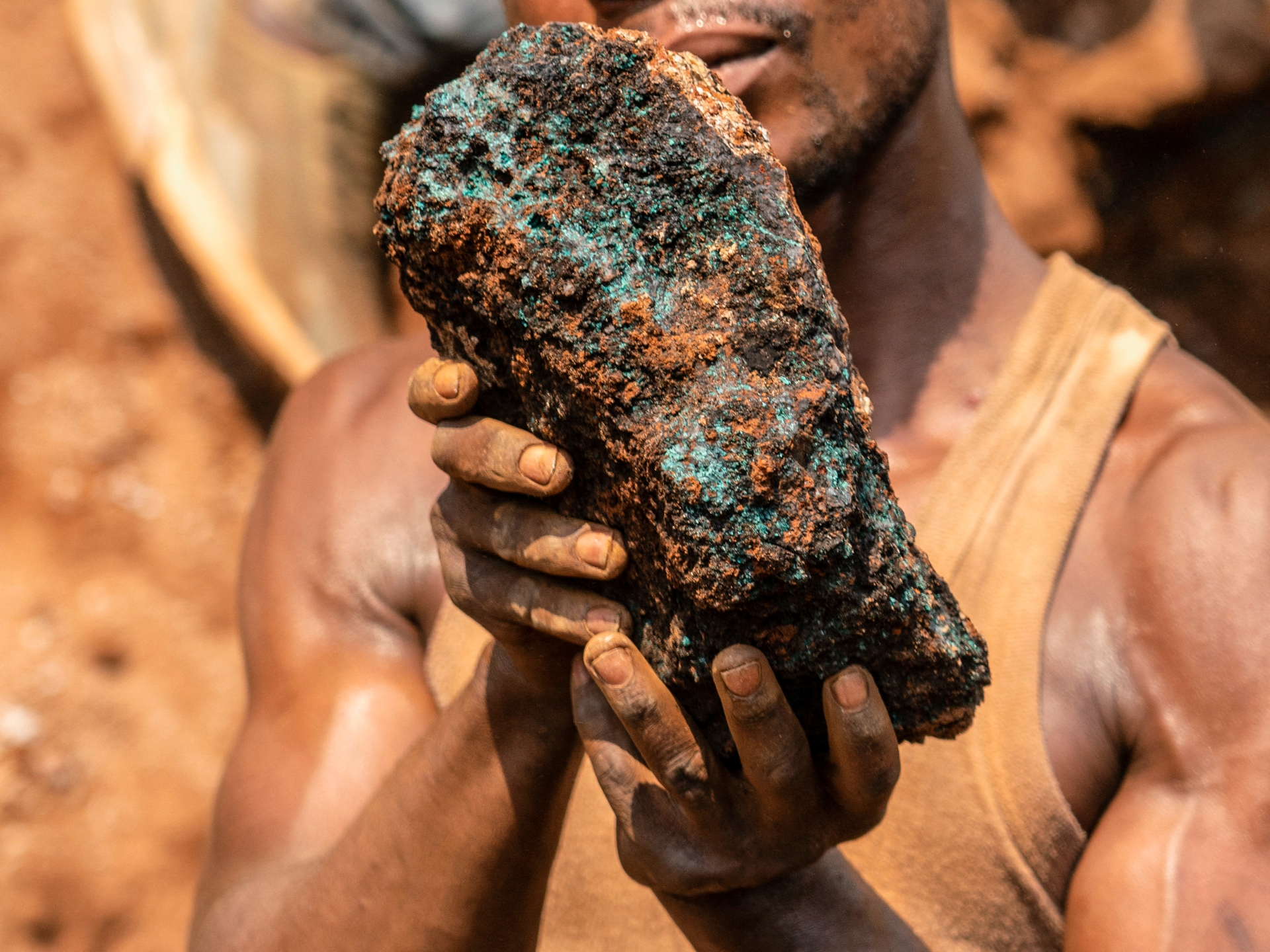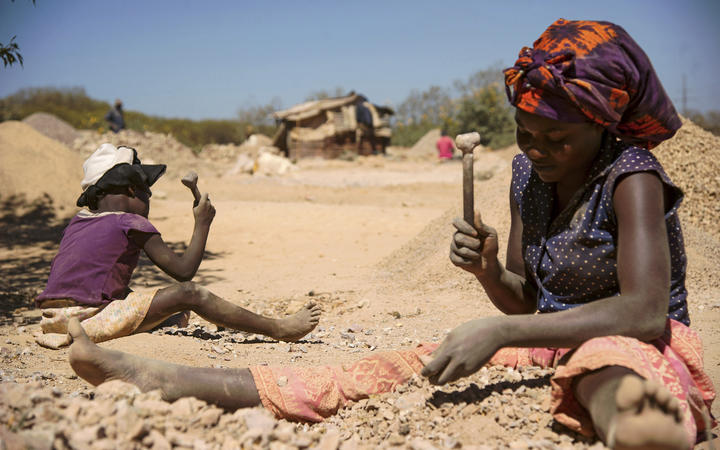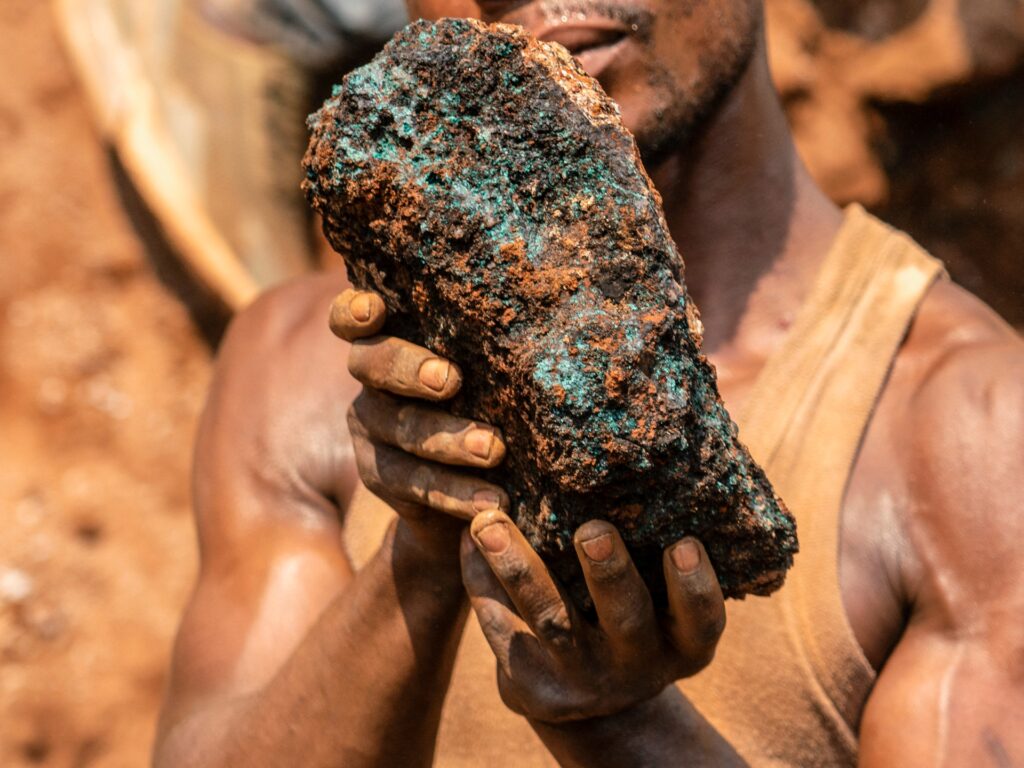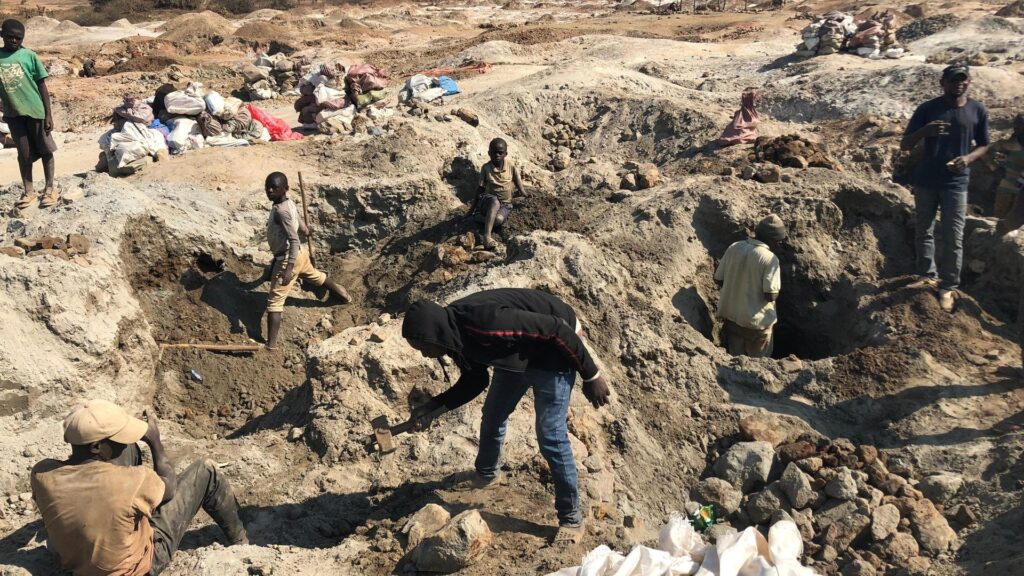Your cart is currently empty!
Congo Cobolt Crisis


Cobalt is a key element in the production of batteries, magnets, and other components for semiconductor technologies. However, the extraction of cobalt often involves unethical and illegal practices, such as child labor, human rights violations, and environmental degradation. According to Amnesty International, more than half of the world’s cobalt supply comes from the Democratic Republic of Congo (DRC), where armed groups and militias control many mines and force workers to operate under harsh and dangerous conditions. Children as young as seven are exposed to physical and psychological harm, as well as the risk of fatal accidents and diseases.
ECOSYSTEM
How Do We Adress This Issue?
As a company that values ethics and social responsibility, Ethics Professionals Game Corporation (EPGC) condemns these practices and expresses its solidarity with the people of Congo who suffer from this exploitation. We believe that cobalt mining should be regulated by international standards and monitored by independent organizations to ensure the protection of human rights and the environment. We also support the efforts of local communities and civil society groups to demand justice and accountability from the perpetrators of these abuses.


In addition, we are committed to helping the people of Congo in their struggle for dignity and development. We donate a portion of our profits to humanitarian and development organizations that provide essential services and assistance to the affected populations. One of these organizations is the International Rescue Committee, an international humanitarian aid organization with a long history of supporting people displaced by war, persecution, or natural disasters. The IRC was founded in 1933 as the International Relief Association, at the request of Albert Einstein, to assist German victims and enemies of Nazism. 1942 it merged with the Emergency Rescue Committee, which was formed to rescue European refugees trapped in Vichy France. Since then, the IRC has expanded its operations to over 40 countries, providing relief, rehabilitation, protection, post-conflict development, and resettlement services to millions of needy people. The IRC also works to improve the health, safety, education, economic well-being, and power of people affected by the crisis. We are also sponsoring educational and vocational programs that empower young people and women to pursue their dreams and aspirations. We are also advocating for political and economic reforms that can foster peace and stability in the region. We believe that these actions will not only benefit our company but also contribute to a more sustainable and peaceful world.
The ethics of cobalt mining and child labor concerning parts in semiconductor technologies is a complex and urgent issue that requires global attention and action. Cobalt is a key component of lithium-ion batteries, which are used in electric vehicles, smartphones, laptops, and other devices. However, the majority of the world’s cobalt supply comes from the Democratic Republic of the Congo (DRC), where many mines are unregulated, unsafe, and exploitative. According to various sources, an estimated 40,000 children are working in dangerous cobalt mines in the DRC, where they face exposure to toxic dust, physical injuries, violence, and abuse. These children are paid as little as $1.5-$2 a day for 12-hour shifts or longer while risking their health and education.
As a company that values ethics, human rights, and social responsibility, Ethics Professionals Game Corporation (EPGC) condemns the use of child labor in cobalt mining and expresses its support and solidarity for the people of Congo who suffer from this injustice. EPGC is committed to ensuring that its products do not contribute to the exploitation of children or the environmental degradation caused by cobalt mining. Therefore, EPGC has taken the following steps to address this issue:
- EPGC has joined the Responsible Cobalt Initiative (RCI), a multi-stakeholder platform that aims to improve the governance, transparency, and sustainability of the cobalt supply chain in the DRC. The RCI was initially proposed by upstream and downstream enterprises of the global cobalt supply chain and relevant organizations in 2016. The RCI promotes cooperation with the government of the DRC, civil society, and affected local communities to take and support actions that address the risks and challenges in the cobalt supply chain. The RCI also implements the OECD Due Diligence Guidance for Responsible Supply Chains of Minerals from Conflict-Affected and High-Risk Areas.
- EPGC has adopted a due diligence policy that requires its suppliers to trace the origin of their cobalt and verify that it does not involve child labor or human rights violations. EPGC also conducts regular audits and inspections of its suppliers to ensure compliance with this policy.
- EPGC has invested in research and development of alternative battery technologies that can reduce or eliminate the dependence on cobalt, such as solid-state batteries, lithium-sulfur batteries, sodium-ion batteries, or hydrogen fuel cells.
- EPGC has donated to various organizations that work to improve the living conditions, education, and empowerment of children and communities affected by cobalt mining in the DRC, such as Amnesty International, UNICEF, and Save the Children.
EPGC believes that these actions are not only ethical but also beneficial for its business, as they enhance its reputation, customer loyalty, and social impact. EPGC also calls on other companies, governments, and consumers to join the efforts to end child labor in cobalt mining and create a greener and fairer future for all.
How can you help fight child labor in cobalt mining?
As a consumer, you can also play a role in fighting child labor in cobalt mining by making informed choices about your purchases. Here are some ways you can help:
- Check the labels or websites of your products to see if they disclose their cobalt sources or their due diligence policies. If they do not, contact them and ask them to do so.
- Choose products that use less or no cobalt, such as those with alternative battery technologies or renewable energy sources.
- Support organizations that advocate for human rights, environmental protection, and social justice in the DRC, such as Amnesty International, UNICEF and Save the Children. You can donate money, sign petitions, join campaigns, or volunteer your time and skills.
- Educate yourself and others about the issue of child labor in cobalt mining and raise awareness among your family, friends, and community.
What are some alternative battery technologies?
Some alternative battery technologies that can reduce or eliminate the dependence on cobalt are:
- Solid-state batteries: These batteries use solid electrolytes instead of liquid ones, which can improve safety, energy density, and lifespan. They can also operate at higher temperatures and lower voltages than lithium-ion batteries.
- Lithium-sulfur batteries: These batteries use sulfur as a cathode material instead of cobalt, which can lower costs, increase capacity, and reduce environmental impact. However, they also face challenges like low cycle life and poor stability.
- Sodium-ion batteries use sodium instead of lithium as an anode material, making them cheaper, more abundant, and less flammable than lithium-ion batteries. However, they also have lower energy density and performance than lithium-ion